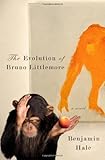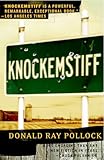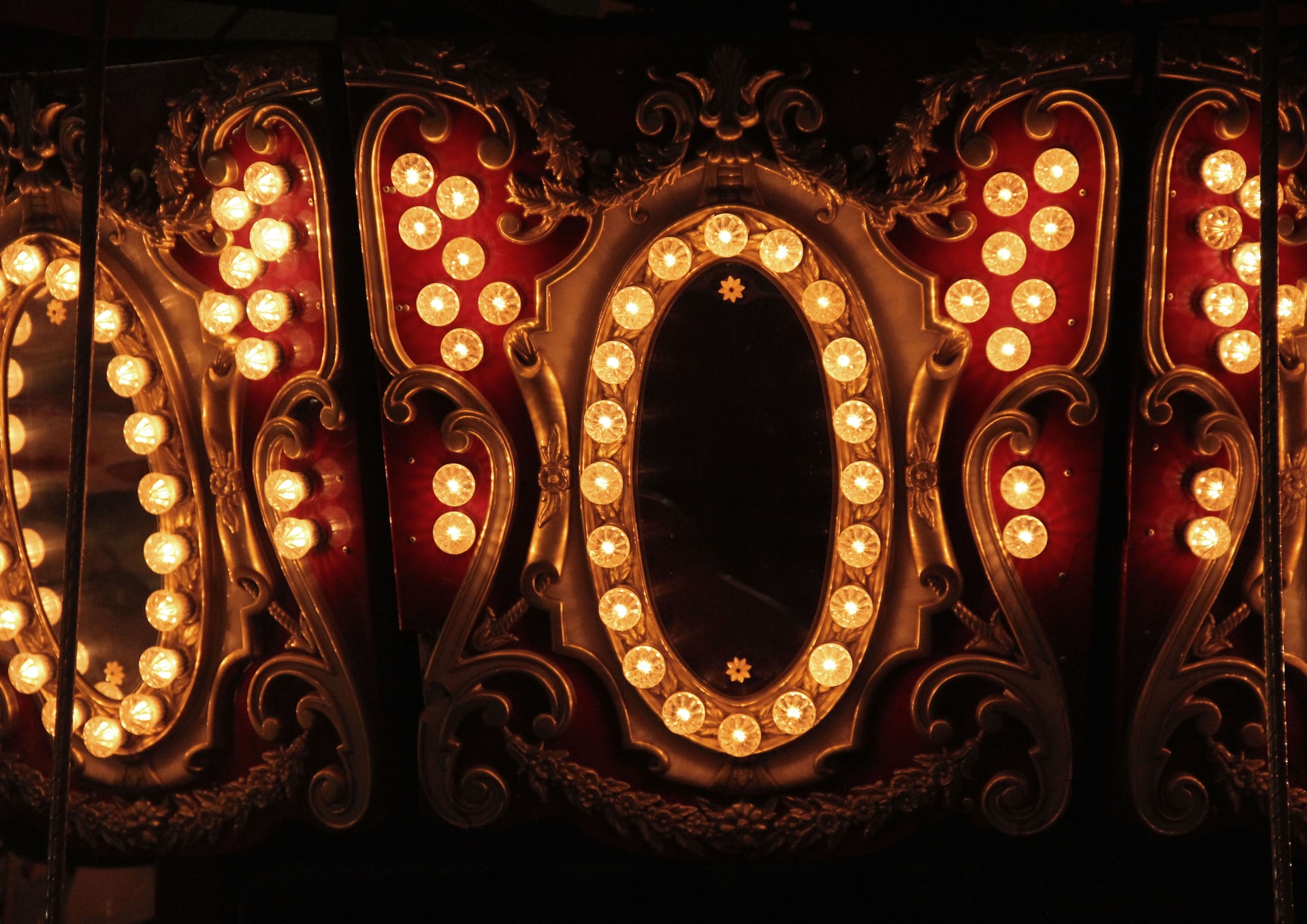 The other day, I got my paws on an advance copy of Zazen by Vanessa Veselka, which will be released this May by Red Lemonade, an imprint of Cursor, Richard Nash‘s start-up publishing community. I loved the cover, which reminds me of some of Ed Ruscha‘s paintings, and a sentence early on pleased me greatly: “He always orders a Tofu Scramble and makes me write a fucking essay to the cook.” Oh how I love an ornery waitress!
The other day, I got my paws on an advance copy of Zazen by Vanessa Veselka, which will be released this May by Red Lemonade, an imprint of Cursor, Richard Nash‘s start-up publishing community. I loved the cover, which reminds me of some of Ed Ruscha‘s paintings, and a sentence early on pleased me greatly: “He always orders a Tofu Scramble and makes me write a fucking essay to the cook.” Oh how I love an ornery waitress!
Then I turned to the back cover, and read Veselka’s bio:
Vanessa Veselka (Portland, OR) has been, at various times, a teenage runaway, a sex-worker, a union organizer, a student of paleontology, an expatriate, an independent record label owner, a train-hopper, a waitress and a mother. Her work has appeared in Arthur, Bust, Maximum Rock ‘N’ Roll, Tin House, and elsewhere. Zazen is her first novel.
Sex-worker? Train hopper? Wow, I thought, I need to get out more. I suppose if I’d had such a dramatic and compelling past, I might include those facts in my own bio. But would I? I tend to prefer only a listing one’s writing-related achievements, however, I recognize this might be closed-minded and uptight of me. My preference of author bio favors academic and publication history over life and work experience, though one could argue–and do so convincingly–that that isn’t necessarily what matters most. Why should one kind of bio be any more relevant than another?
Still, I can’t help but feel a tinge of annoyance when I read that John Brandon wrote his second novel Citrus County while working “at a Frito-Lay warehouse and a Sysco warehouse.” How cute. I admit, I did laugh at this next line: “During another part of the writing of this book he was unemployed,” and I felt relieved to learn that during the novel’s revision, he’d received a fellowship from the University of Mississippi.
 And there’s Benjamin Hale, author of the debut novel The Evolution of Bruno Littlemore. From his bio we learn not only that he’s a graduate of the Iowa Writers’ Workshop, but also that he’s been “a night shift baker, a trompe l’oeil painter, a cartoonist, an illustrator and a technical writer.” Oh. I see.
And there’s Benjamin Hale, author of the debut novel The Evolution of Bruno Littlemore. From his bio we learn not only that he’s a graduate of the Iowa Writers’ Workshop, but also that he’s been “a night shift baker, a trompe l’oeil painter, a cartoonist, an illustrator and a technical writer.” Oh. I see.
And there’s my friend Joseph Mattson, author of the novel Empty the Sun. The last line of his bio reads:
An epical rambler–miles under him include work as a farmer, dishwasher, getaway driver, and in healthcare for the clinically mentally insane–his home base is Los Angeles.
I have to wonder why Joseph didn’t include his years-long tenure at Book Soup, where he’s the man behind the beautiful signage. (It could be his mention of the “clinically mentally insane” is a veiled reference to that job…) Is graphic design too stable and predictable an occupation for the author of a novel as whiskey-soaked as Empty The Sun? Probably. For when it comes down to it, this is just a question of branding.
 Most of the time, the choice to include non-writing information suggests that the author is an outsider, or wants to be considered one. Donald Ray Pollack, for instance, worked 32 years in a paper mill before the publication of his short story collection Knockemstiff. This implies that his worldview has been honed by far more than reading, writing, and teaching writing; he has an MFA, but he’s not like the rest of those MFA-grads (yawn) who have debut story collections! And his bio works: I’m interested in his distinct point of view, and also, I don’t see why he shouldn’t include an activity that was a decades-long career. Readers are concerned with authenticity, even when what they’re reading is fiction.
Most of the time, the choice to include non-writing information suggests that the author is an outsider, or wants to be considered one. Donald Ray Pollack, for instance, worked 32 years in a paper mill before the publication of his short story collection Knockemstiff. This implies that his worldview has been honed by far more than reading, writing, and teaching writing; he has an MFA, but he’s not like the rest of those MFA-grads (yawn) who have debut story collections! And his bio works: I’m interested in his distinct point of view, and also, I don’t see why he shouldn’t include an activity that was a decades-long career. Readers are concerned with authenticity, even when what they’re reading is fiction.
The thing is, a bio that focuses on the author’s non-writing jobs bothers me in the same way those new Levi’s ads bother me; “All work is equally important” the billboards read, the text paired with black-and-white photographs of beautiful be-denimed men, usually standing in fields. Am I really supposed to believe these guys are farmers? Please. As Americans, we romanticize manual and/or blue collar labor, even as we ignore the real people who do these jobs today–or are losing these jobs either to technology or to a cheaper workforce overseas. A walk through the men’s department at Macy’s proves the current obsession with the working class: a $200 flannel, anyone? Last week in Brooklyn, I saw hordes of men in work boots, plaid shirts, and the hats of longshoremen–and I’ll let you in on a little secret: these men weren’t headed for the docks. Levi’s knows that people who can afford designer jeans do not want to see themselves as administrative assistants, or worse: creative writing teachers. Maybe Doubleday knows this as well; I get the feeling that Pollack’s bio stuns anyone who has not worked in a factory.
Or is my annoyance at the non-standard bio about something else? With the authors who have held a dozen, motley jobs, I worry that book writing is just a hobby for them, a one-off thing, another occupation in a long line of them. God damn the dilettantes multi-talented! Or is it because such a bio suggests that writing, and the devotion to that pursuit, isn’t worthy enough for its own three-line biography? Maybe it’s that tired idea that writers are lame, sheltered wimps who haven’t really lived. “Please!” these bios call out. “I’m more than just a writer! I am worthy of your admiration and respect!”
I’m sure this is all stemming from my own insecurities. Part of me is embarrassed by the fact that I’ve pursued writing since I was a kid, that I did not have a long and colorful life before I put pen to paper. I’m probably just envious. I can’t blame the writers whose bios spotlight a different kind of life, a different part of life. As I said, it’s all branding, in the end. Don’t hate the player, hate the game.
The truth is, every published writer has been faced with summing themselves up in just a few sentences. It’s not easy, and a bio isn’t a fixed thing–or at least not until you’re dead. Until then, it (hopefully) evolves with each new publication, each year lived. The decision of what to include and exclude persists throughout one’s career.
The real question, then, is: What makes a writer? Unfortunately, a few sentences cannot answer that. A writer is made by writing, and by reading, and by living: going to work, and eating, and being bored, being loved and being hurt, being held by your mother (or not), by sleeping, by waking up from bad dreams, by erasing one sentence, and rewriting it, erasing it again. All that, you see, cannot be summed up in a jacket flap.
Maybe these other writers are onto something. Maybe I should revise my bio approach. How does this sound:
Before Edan Lepucki published her first novel, she was an independent bookseller, a cheesemonger, a team member at Jamba Juice, a bored salesgirl at an art gallery gift shop, a law firm receptionist, a file clerk, and a model for children’s exercise wear. She had her first kiss when she was twelve, but didn’t lose her virginity until college, where she was a member of a hip-hop dance group and lived in a house with a broken heating system. She is a graduate of the Iowa Writers’ Workshop, but the MFA program at Syracuse had been her first choice, but they rejected her ass. Her parents didn’t graduate from college, and neither did her older sister, so, you know, she’s not some stuffy professorial type. Please buy her book, which–let the record show–did not glide easily into publication, despite her quote-unquote literary pedigree.
Now please, kind reader, buy my novel. I’ll let you know when it’s out.
Image credit: Unsplash/Giorgio Trovato.










